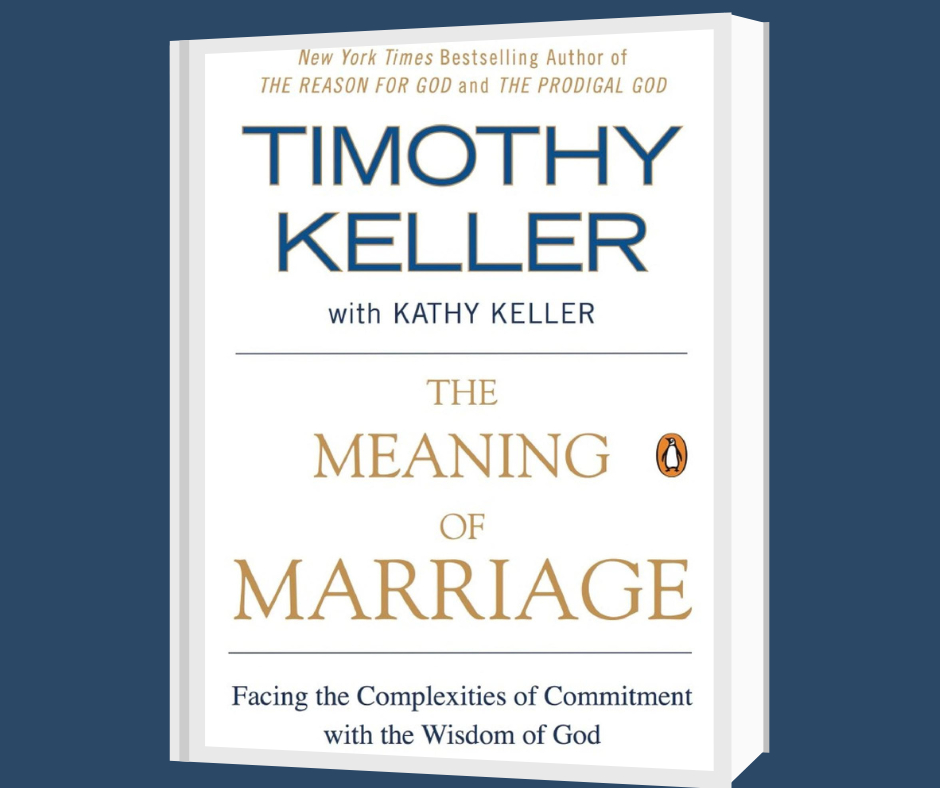Book Reviews
The Meaning of Marriage: Facing the Complexities of Commitment with the Wisdom of God, by Timothy Keller with Kathy Keller | Review by Rosa Byler

Why another marriage book? With all the Christian material on marriage, from the inspired words of the Apostle Paul to observations by Martin Luther and books by Emerson Eggerichs, one would think it had all been said already. Yet instructive writing generally reflects the specific strengths and weaknesses of the authors’ era and culture, and new slants on timeworn issues merit up-to-date focus. The marriage books we received as wedding gifts in the late 1980s were heavily influenced by popular psychology; more recent writers, prompted by the biblical counseling movement, speak competently into those unhealthy perspectives.
The gospel-centered-marriage-book market does not yet appear to be flooded; and this book steps into a particular cultural gap, shaped as it is by Timothy Keller’s study of Scripture as well as his unique experiences and environment. For the last twenty-seven years he has pastored Redeemer Presbyterian Church in New York City, where neither second-generation Christians nor traditional families are the norm. Preaching to an audience numbering in the thousands (of which nearly three fourths are single adults) and including skeptics as well as Christians and “seekers” would cause any pastor to look carefully at the Bible’s teaching on marriage, and Keller has been doing that. This book began over twenty years ago as a nine-week series of sermons.
Keller describes his book as “a Christian understanding of marriage…based on a straightforward reading of Biblical texts (9)”—mainly Ephesians 5:18-33 and Genesis 2:22-25, portions from which appear as chapter subheadings and shape each chapter’s framework. In today’s cultural context, drawing biblical connections with those around us can seem difficult to impossible, and inadequate knowledge of the Scriptures and the power of God may cause us to retreat from the discussion. Keller’s thorough and growing familiarity with both is confidence-building and provokes the reader to similar progress.
Keller begins with the Bible’s most basic marriage teaching: that God instituted marriage and that it is to reflect His love for us through Jesus. Therefore, sinful, selfish people need the Holy Spirit’s power in order to do marriage well. Our culture makes much of “feelings” of love and considers commitment (a piece of paper, if you will) oppressive; Keller discusses the connection between “romantic love” and “sacrificial commitment” (81). Only on a covenantal foundation will couples survive the stresses of living together long enough to fulfill “the mission of marriage”: becoming a means of one another’s spiritual growth and change (a goal not commonly heard in wedding sermons). Not surprisingly, he follows with forty pages enlarging upon “loving our spouse deliberately and well (172).”
Marriage involves two different genders, a “difficulty” for which our society has found a solution much worse than the perceived problem. Keller’s wife Kathy contributes a chapter on embracing and appreciating our differences instead of misunderstanding, denying, or scorning them, all of which end in frustration.
While the whole book can be read with profit by the unmarried, Keller devotes a chapter to singleness and marriage, stating that “…single people cannot live their lives well as singles without a balanced, informed view of marriage (219).” His evaluation of dating practices, the courtship model, and arranged marriage is especially intriguing, as people groups tend to accept and perpetuate thoughtless pre-marriage practices. (For example, does your church community have regular traffic patterns between 12:01 and 1:00 on Monday mornings? Have you ever wondered why?) Keller suggests practical ways to focus on character, community involvement, and what he calls “comprehensive attraction” (as opposed to merely emotional or physical attraction) for those seeking marriage.
The book’s eight chapters are fairly lengthy. Though written in a conversational and easy-to-read style, they require time for processing. Keller’s acquaintance with a variety of cultural perspectives (both recent and earlier milestone books and articles on the subject of marriage, gender, and relationships) add depth and connection to his writing. Numerous footnotes (explained in a 42-page appendix) enable the reader to track information to its source and investigate further. But the book’s biggest strength is its comparison/contrast of conventional marriage understandings and practices with the biblical viewpoint, backed with Scripture. A must-read for married and singles alike!